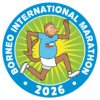
How to Train for Borneo International Marathon 2025 with a Busy Schedule: A Runner’s Guide
Marathon training is demanding. Between work, family, social obligations, and rest, it can be hard to squeeze in quality training sessions. But with a little planning and the right strategies, it’s absolutely possible to balance marathon training with a busy schedule. As the Borneo International Marathon 2025 approaches, runners from all walks of life are preparing to take on the challenge, and many of them are juggling full-time responsibilities. Here’s how you can train smart, stay consistent, and show up ready on race day.
Why Balancing Training Matters?
Training for a marathon isn’t just about logging miles, it requires time, mental focus, and recovery. Poor time management can lead to over training, burnout, or missed workouts, all of which affect your performance and increase your risk of injury. Successfully balancing training and a busy lifestyle ensures:
- Consistent progress
- Lower stress levels
- Sustainable motivation
- Injury prevention
- Better performance on race day
1. Set Realistic Goals
When balancing a hectic schedule, it’s important to tailor your marathon goals to fit your current lifestyle. If this is your first marathon or your time is extremely limited, focus on completing the race rather than aiming for a personal best.
Tips:
- Choose a training plan that fits your time availability (e.g., 3-4 days/week plans)
- Aim for consistency over perfection
- Adjust goals as your schedule changes
2. Build a Flexible Weekly Training Plan
Flexibility is key. Design a weekly plan with the essential runs: one long run, one speed or tempo run, and one to two easy/recovery runs. Consider combining runs with other daily tasks, like commuting or school drop-offs.

3. Prioritize Quality Over Quantity
Not every run has to be long. Focus on the purpose of each run. Speed work, tempo runs, and long runs should be high-quality. Supplement with shorter, manageable runs to maintain fitness without overwhelming your schedule.
Tips:
- Skip junk miles that serve no purpose
- Use time-efficient workouts like intervals
- Make every run count
4. Embrace Early Mornings or Late Evenings
If your days are packed, training early in the morning or after work may be your best option. Early runs can energize your day, while evening runs help release stress.
Tips:
- Prepare gear the night before
- Stick to well-lit, safe routes for evening runs
- Limit screen time before bed for better sleep recovery
5. Use the Weekend Wisely
Weekends offer an opportunity for longer sessions, cross-training, or catching up on missed workouts. Treat weekend training like an appointment you can’t skip.
Tips:
- Start your long runs early to free up your day
- Combine training with social activities (run with friends!)
- Plan family-friendly routes or stroller runs if needed
6. Cross-Training and Active Recovery
Short on time? Cross-training options like cycling, swimming, and strength workouts are excellent substitutes. These workouts build endurance and prevent overuse injuries, perfect for runners following our Ultimate Borneo International 2025 Marathon Training Guide.

7. Stack Habits and Multitask
You can train without disrupting your whole day. Try running during lunch breaks or doing mobility exercises while watching TV. Pair training with daily habits like listening to podcasts, meditating, or family time.
Tips:
- Run errands on foot
- Use treadmill time to watch webinars or videos
- Stretch while brushing your teeth or winding down
8. Prioritize Rest and Nutrition
Training while busy can wear you out. Rest and nutrition are non-negotiable for peak performance. Don’t skimp on sleep or meals.
Tips:
- Aim for 7-9 hours of sleep per night
- Prep meals on weekends
- Stay hydrated and carry snacks during the day

9. Be Kind to Yourself
Life happens. You may miss a run or two, and that’s okay. What matters is consistency over time. Don’t let occasional setbacks derail your training or motivation.
Tips:
- Don’t overcompensate by doubling workouts
- Keep a positive mindset
- Use setbacks as learning moments
Final Thoughts
Training for the Borneo International Marathon 2025 doesn’t have to take over your life. With the right plan, prioritization, and attitude, you can balance training with a demanding schedule and still show up ready to conquer the marathon. Your journey is just as important as race day. Train smart, stay consistent, and make time for yourself, your future finish-line photo will thank you.
